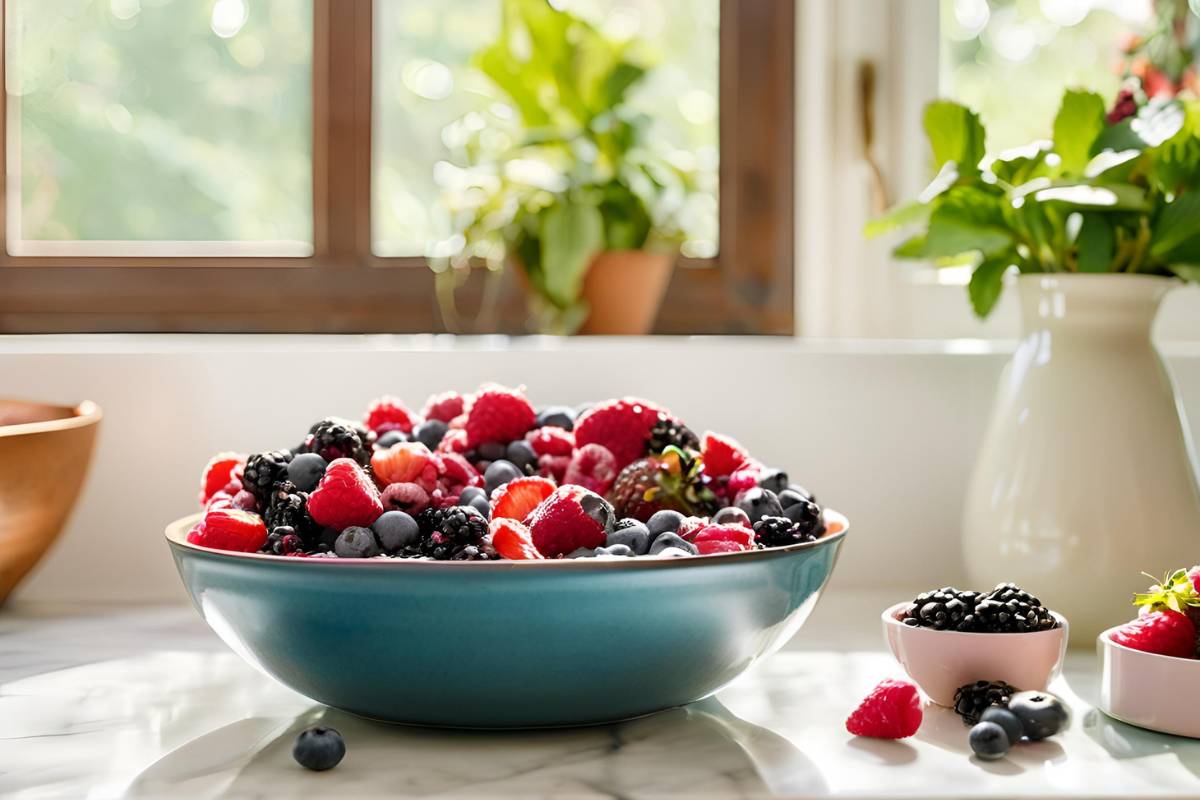Learn how a rainbow of fruits, berries, apples, tomatoes, citrus, and avocados, can reduce inflammation, enhance immunity, and lower your cancer risk with potent nutrients and antioxidants.
Consuming a variety of fruits is more than a tasty indulgence, it’s an active means of maintaining your overall well-being and lowering your risk of cancer development. Experts concur that a diet rich in fruits and plant-based foods delivers essential vitamins, antioxidants, and phytochemicals that fight inflammation and inhibit processes associated with cancer development.
Why Fruits Are Important in Cancer Prevention
Fruits serve multiple functions in a cancer-preventative die
Anti-Inflammatory Benefits: Chronic inflammation is a well-known precursor to most cancers. Vitamins and antioxidants in fruits counteract inflammation.
Antioxidant Protection: Phytochemicals and antioxidants in fruits destroy free radicals, which might prevent the initiation of cancer-forming processes.
Immune System Support: Fruits’ nutrients can activate your immune system, supporting the body’s natural defense against abnormal cell growth.
Fiber & Gut Health: Fruits contain fiber, which helps to not only digest food but also assist in the creation of beneficial compounds by gut bacteria—defending cells, particularly those of the colon.
Recommended daily intake: Experts like Candice Schreiber, RD, CSO, LD, with The Ohio State University Comprehensive Cancer Center – James, recommend 1.5 to 2 cups of a mixture of fruit each day. (To learn more about healthy eating recommendations, visit the American Cancer Society and Harvard T.H. Chan School of Public Health).
1. Berry Boost: Nature’s Tiny Powerhouses
Key Benefits:
Nutrients & Fiber: Berries like blueberries, raspberries, blackberries, and strawberries are high in fiber, folate, and vitamin C.
Cancer-Fighting Phytochemicals: They are rich in polyphenols—chemicals that might interfere with cancer cell growth.
Whole vs. Processed: While acai berry is well-marketed as a superfood, it’s healthier to have it in its whole state. Most acai products like powders and juices may have added sugars, lessening their health value.
2. An Apple a Day Keeps Cancer at Bay
Key Benefits:
Fiber & Vitamin C: Apples are an affordable source of vital nutrients.
Pectin for Gut Health: Apple fiber, particularly in the peel, promotes beneficial gut bacteria that produce compounds that shield colon cells.
Flexible Snack: Have apples whole, slice them in salads, or even bake with veggies to include a natural sweetness to your diet.
The Tomato: Beyond Being a Salad Standby
Primary Advantages:
Full of Lycopene: This potent antioxidant has demonstrated promising anti-cancer benefits, most notably against prostate cancer.
Improved Absorption: Tomatoes cooked, particularly with healthy fats such as olive oil, enhance the bioavailability of lycopene.
Synergistic Effects: When tomatoes are combined with other vegetables such as broccoli, their cancer-fighting capabilities may be enhanced.
Citrus Fruits: Sour and Therapeutic
Key Benefits:
Vitamin C and Flavonoids: Oranges, grapefruits, lemons, and limes contain immune-boosting vitamin C and health-promoting flavonoids.
Multi-Use: Enjoy a half-grapefruit as breakfast or lemon and lime juice in water for added flavor and nutrient uptake.
Medication Worry: Grapefruit does interfere with some drugs, such as some cholesterol-controlling medications. Always check with your doctor prior to making considerable dietary changes.
5. The Miracle Avocado: Rich and Packed with Nutrition
Main Advantage:
Healthy Fats: Avocados are a great source of monounsaturated fats that promote heart health.
Full of Vitamins & Minerals: They contain a range of vitamins, antioxidants, and phytochemicals.
Fiber & Potassium: Fiber and potassium in avocados help to regulate a normal heart rate and healthy blood pressure.
Calorie Consciousness: At approximately 250 calories per fruit, portion control is essential. Homemade guacamole prepared with lime juice, cilantro, garlic, onions, and tomatoes can be a healthier alternative to restaurant-style versions filled with added oils.
Conclusion
Adding a variety of fruits to your daily food intake is a tasty and natural way to decrease your cancer risk. Enjoying the advantages of berries, apples, tomatoes, citrus fruits, and avocados will assist in fighting off inflammation, boosting your immune system, and maintaining overall health. Keep in mind that a healthy diet, proper exercise, and keeping a healthy weight are all important ingredients in preventing cancer.
Further Reading & Resources
American Cancer Society – Nutrition and Cancer
Harvard T.H. Chan School of Public Health – The Nutrition Source








